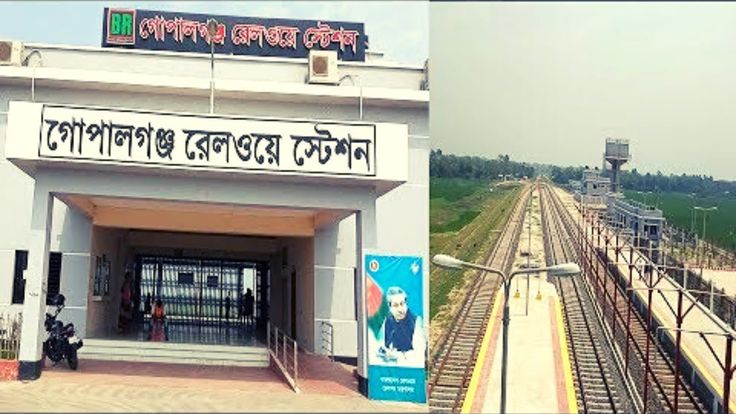Sheikh Mizanur Rahman, the commander of the Dhaka-headquartered Range Reserve Force (RRF), has remained an SP-rank officer for close to a decade. Inwardly, Rahman is a bitter man. He has been denied promotion even as his batchmates in the Bangladesh Civil Service have routinely moved up the hierarchy.
But this hasn’t prevented him from donning the physical markers – shapla (national flower) and a crossed sword and baton – of an additional inspector-general of police on his uniform epaulettes. Strange – and even comical – as it may sound, Rahman goes about his routine work as RRF commander but in his mind he is an additional DIG even though he has been denied promotion by the government.
As Bagerhat SP, there were complaints of alleged land grab against him. He was suspended from service, shifted out as an officer on special duty and somehow avoided arrest. Some eight years ago, he moved the high court, suing the government for denying him promotion. The court ruled in his favour but the government didn’t prefer to execute the judicial order.
In his paternal Gopalganj district, he is in a property-related dispute with no less than the family of Bangladesh prime minister Sheikh Hasina who also hails from the same place that is about 162 km northeast of Dhaka. “Despite his problems with the government, Rahman remains in service and survives because he is a ‘Gopali’,” says a senior Bangladesh police officer.
There are other ‘Gopalis’ among Bangladesh’s senior police officers who have fared much better. Their ancestral origins have ensured regular promotion. It is also the source of their close affinity to the ruling Awami League power structure. Needless to say, they are a powerful – and sometimes ruthless – sub-set within the police force.
There are at least eight such senior officers – the head of the notorious Rapid Action Battalion, Additional IG Mohammad Khurshid Hossain, Dhaka Metropolitan Police (DMP) commissioner Habibur Rahman, special branch chief Manirul Islam, additional IG (Anti-Terrorism Unit head) S M Ruhul Amin, Criminal Investigation Department (CID) chief Mohammad Ali, Railway Police additional IG Didar Ahmed and Police Investigation Bureau (PIB) chief additional IG Banaj Kumar Majumdar who hails from Pirojpur near Tungipara in Gopalganj.
There are at least six other police officers – DIGs and SPs – are part of the trusted ‘Gopalganj Police League’. These are Chittagong Range DIG Nure Alam Mina, Rajshahi Range DIG, Mohammad Anisur Rahman, Habiganj SP S M Murad Ali, Gazipur SP Kazi Shafiqul Alam, Manikganj SP Mohammad Golam Azad Khan and Dinajpur SP Shah Iftekhar Ahmed.
There are senior officers in other key departments and agencies, including the shadowy security organisation, the Directorate General of Forces Intelligence (DGFI) and the much-feared army, who also hail from Gopalganj. Quarter Master General (QMG) Lieutenant General Mohammad Saiful Alam, who was DG DGFI in 2020-21, is from Gopalganj. A former Bangladesh police inspector-general and ex-RAB chief, Benazir Ahmed, is also from Sheikh Hasina’s district of origin.
These police officers are considered key to the ruling Awami League’s scheme of things in administering and maintaining law and order in a country that is likely headed for elections by January 2024. “Besides being described as ‘Gopalis’, they are also pejoratively known as belonging to the Gopalganj Police League. But they are also supremely loyal,” said a retired senior police officer preferring anonymity.
The officer, familiar with the history of the recruitment process in the Bangladesh Civil Service in general and the police in particular, said that the in-take in the police hierarchy followed due rules and regulations during the rule of Gen Hussein Mohammad Ershad and the BNP. Over the last 15 years, recruitment is guaranteed for most applicants if they fulfill one important criterion – being an Awami League sympathiser or party cadre.
“Irrespective of merit, educational background or performance in competitive entrance tests, recruits across all ranks are unofficially screened for their political loyalty in the viva voce stage,” said another former senior police officer.
Police sources revealed that the current DMP chief was a government office clerk who “somehow made it to the civil service” that enabled him to be part of the 17th batch of the BCS. Others such as special branch chief Manirul Islam and CID head Mohammad Ali are said to have made it to the BCS on grounds of merit, though the Gopalganj connection certainly helped.
The ‘Gopalganj Police League’ has, in turn, two groups led by Habibur Rahman and Manirul Islam who “play their own power games” and are said to be instrumental in pushing their own acolytes for promotion.
Thursday, March 5, 2026
Why the ‘Gopalganj Police League’ is a formidable force in Bangladesh
A select clique of senior police officers who hail from the birthplace of Prime Minister Sheikh Hasina are key to maintaining law and order in Dhaka and elsewhere

About Us
Northeast News is a digital only news platform covering Northeast India news 24×7. As Northeast India states – Assam, Meghalaya, Tripura, Mizoram, Manipur, Nagaland and Arunachal Pradesh hardly get any news coverage in the mainstream media, we are here to be ‘Vocal for Local’.
© 2022 All Rights Reserved.














